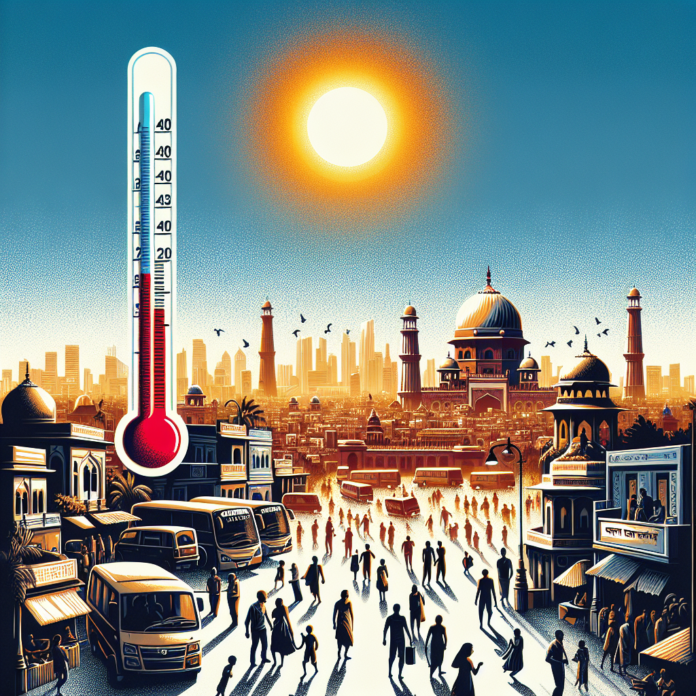Delhi Braces for Extreme Heat with Temperatures Expected to Reach 42 Degrees
Heat Wave Alert: Is Delhi Prepared for Scorching Temperatures of 42 Degrees?
As temperatures in Delhi are anticipated to rise sharply, with the mercury expected to hit a staggering 42 degrees Celsius, concerns about the city’s readiness to handle such extreme heat are mounting. The India Meteorological Department (IMD) has issued a heat wave alert, indicating that residents should brace themselves for not only soaring temperatures but also potential health risks associated with the heat.
Health Risks Associated with Extreme Heat
High temperatures can lead to a range of health issues, including heat exhaustion, heat stroke, and other heat-related illnesses. Vulnerable populations, such as the elderly, children, and those with preexisting health conditions, are particularly at risk. It is crucial for residents to stay hydrated, avoid outdoor activities during peak heat hours, and seek cool environments whenever possible.
Government Measures and Public Awareness
In response to the impending heat wave, local authorities are ramping up public awareness campaigns to educate residents about the dangers of extreme heat. Emergency services are also on high alert, with plans in place to assist those who may be affected by the rising temperatures. Cooling centers are expected to be opened in various parts of the city, providing refuge for those without access to air conditioning or other cooling facilities.
Infrastructure Preparedness
Delhi’s infrastructure will be tested as the heat wave sets in. The power supply is often strained during such high-demand periods, leading to potential outages. The city’s water supply system must also be prepared to handle increased demand as residents look to stay hydrated. Authorities are urging residents to conserve water and use it judiciously.
Long-Term Climate Considerations
The recurring heat waves in Delhi raise important questions about long-term climate resilience and urban planning. As climate change continues to exacerbate extreme weather events, it is vital for city planners and policymakers to invest in sustainable infrastructure, green spaces, and cooling technologies to mitigate the impacts of extreme heat on urban populations.
Conclusion
As Delhi braces for the impending heat wave, it is essential for residents to stay informed and take necessary precautions. The collaboration between government agencies and the community will be critical in ensuring safety and well-being during this challenging period. By fostering a culture of preparedness and resilience, Delhi can better navigate the challenges posed by extreme heat and work towards a more sustainable future.
